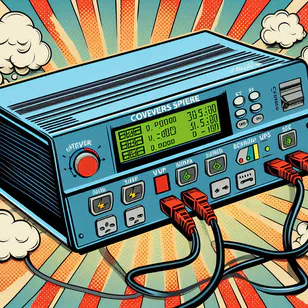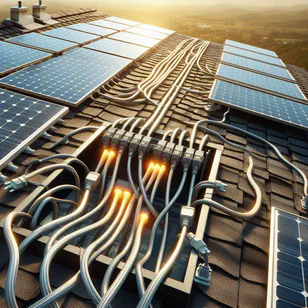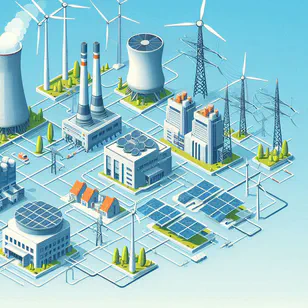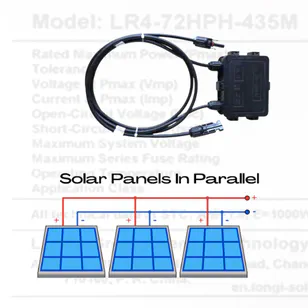Introduction
By understanding the limitations and exploring alternative heating solutions, you can better prepare your household for winter and make the most of your solar power system.
One of the most common questions I’ve received recently is whether it’s possible to power an electric boiler with a solar power system. It’s encouraging to see that our fellow citizens are thinking ahead about winter heating solutions. However, it’s important to clarify the situation: heating with an electric boiler, especially from a solar power system, is generally not feasible. Here’s why.
Challenges of Using Solar Power for Electric Boilers
1. Insolation Levels
During the heating season, the amount of sunlight in the northern hemisphere is minimal, particularly in November and December.
2. Short Daylight Hours
In December, there are about 8 hours of daylight compared to 16 hours in June. This significant difference impacts solar energy generation.
3. Snow Coverage
Solar panels installed at angles up to 45 degrees are often covered with snow during winter, greatly reducing their efficiency.
4. Low Sun Position
The sun stays low in the sky during winter, making standard installation angles less effective and further decreasing solar generation.
5. High Energy Demand
Electric boilers are massive energy consumers, requiring large amounts of energy over extended periods. Unlike a kettle that boils in 10 minutes or a boiler that heats water in a few hours, an electric boiler demands continuous high power.
Due to the mismatch between consumption patterns and solar generation, using high-energy-consuming devices like electric boilers with solar power is not feasible.
Can Solar Systems Help During Power Outages with Electric Boilers?
If you rely solely on an electric boiler and there’s no access to natural gas or district heating, solar systems unfortunately cannot provide adequate support during power outages.
Viable Solar Heating Alternatives
1. Inverter Air Conditioners in Heating Mode
These units have a good Coefficient of Performance (COP), consuming 200-350 watts of electricity to generate 1 kW of heat.
2. Heat Pumps
Any type of heat pump can maintain heating during power outages due to their high efficiency.
3. Emergency Options
Propane boilers are a viable backup. Ensure you have filled propane tanks, as these systems require minimal electricity (up to 120 watts for the boiler and additional power for other pumps in your heating system). Solid fuel boilers are another alternative.
Conclusion
If you have a solar power system, it’s advisable to avoid using an electric boiler and consider alternative backup heating options. Even when connected to the grid, electric boilers can be very costly. Exploring more efficient and reliable heating methods will not only save you money but also ensure you stay warm during the winter months.




